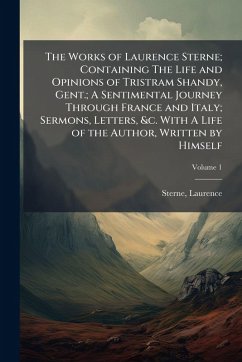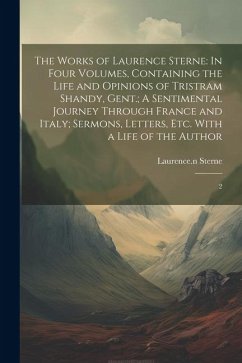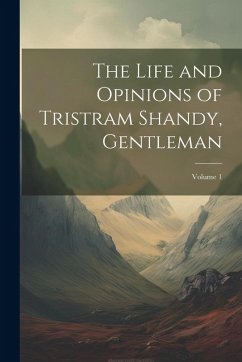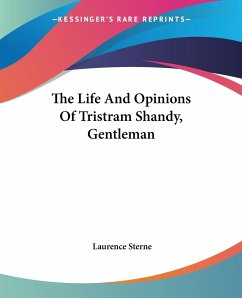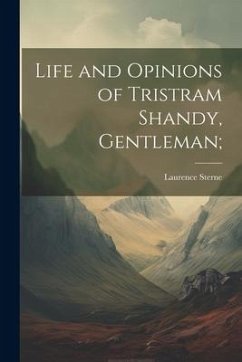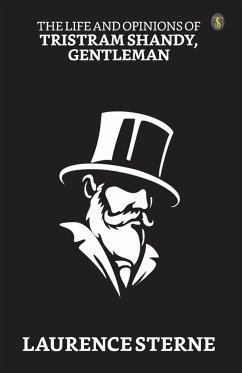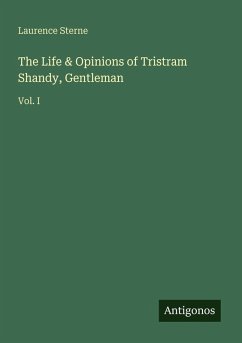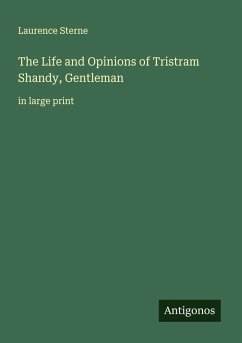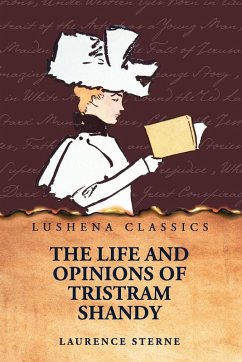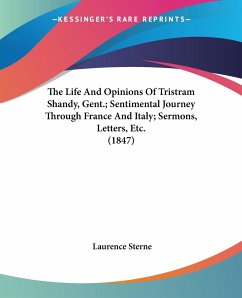
The Life And Opinions Of Tristram Shandy, Gent.; Sentimental Journey Through France And Italy; Sermons, Letters, Etc. (1847)

PAYBACK Punkte
13 °P sammeln!
This scarce antiquarian book is a facsimile reprint of the original. Due to its age, it may contain imperfections such as marks, notations, marginalia and flawed pages. Because we believe this work is culturally important, we have made it available as part of our commitment for protecting, preserving, and promoting the world's literature in affordable, high quality, modern editions that are true to the original work.



